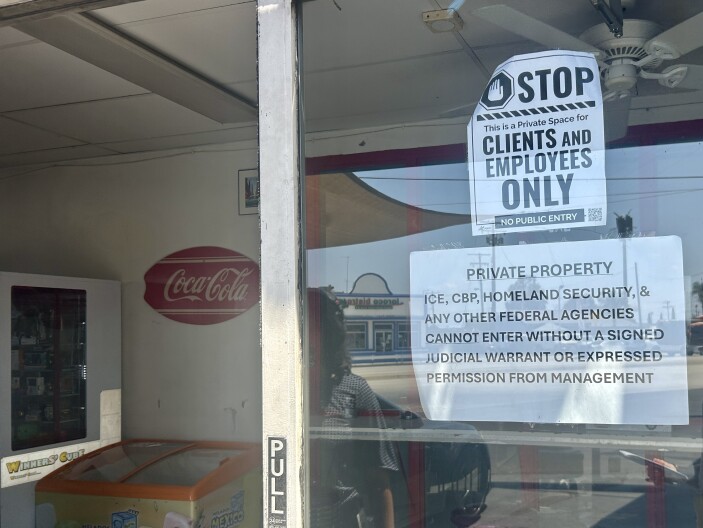In a series of aggressive actions, immigration agents have targeted car washes in Los Angeles, detaining numerous workers and instilling fear among employees. The raids began at the Touch and Glow Car Wash in Whittier, a predominantly Latino neighborhood, where assistant manager Hector Contreras described a chaotic scene as agents surrounded the establishment. Despite showing his legal permanent residency, Contreras was held for ten minutes while three of his coworkers were detained. Following these incidents, many workers have not returned to their jobs.
Reports indicate that since June, agents have conducted multiple raids on car washes across Southern California, aligning with the enforcement goals of the previous administration under Donald Trump. The focus of these sweeps has predominantly been on workers rather than owners, with car washes comprising nearly 50% of businesses targeted by immigration actions, according to analysis by LAist.
Impact on Workers and Community Response
The climate of fear triggered by these raids has affected not only undocumented immigrants but also native-born residents. Many individuals now hesitate to leave their homes or report to work. The CLEAN Carwash Worker Center has documented over 100 detentions in these operations, which have also included customers. Although recent court rulings have temporarily restricted immigration enforcement from using race or ethnicity as a basis for action, local news reports suggest that sweeps have not ceased entirely.
The absence of penalties for employers during these enforcement actions raises questions about accountability. Since January, LAist identified only one employer penalized for hiring unauthorized workers, highlighting a significant gap in enforcement. Tricia McLaughlin, assistant secretary at the Department of Homeland Security, stated, “There will be no safe spaces for industries who harbor violent criminals or purposely try to undermine ICE’s efforts.”
Experts agree that the current immigration system incentivizes unauthorized migration due to the availability of work in the U.S. Ira Mehlman from the Federation for American Immigration Reform noted that addressing these economic drivers is key to reducing illegal immigration.
Legal Framework and Employer Responsibilities
The foundation of U.S. immigration law was significantly shaped by the 1986 Immigration Reform and Control Act (IRCA), which imposes fines and jail time on employers for knowingly hiring unauthorized workers. Despite this, many employers escape penalties, largely due to the influence of business lobbying and the difficulty in proving knowledge of unauthorized hiring.
Many businesses, particularly in the car wash industry, rely on immigrant labor due to its affordability. Raúl Hinojosa, a professor at UCLA, criticized the selective enforcement tactics, suggesting they serve more as political theater than effective policy.
During the raids, owners and managers reported that no prior warnings were given and that agents often disregarded requests for warrants. Omar Mawazini, owner of Anaheim Car Wash, expressed frustration over the lack of communication from ICE, stating, “I asked for a warrant… they didn’t provide that.”
The rapid nature of the raids, with some lasting only minutes, has left workers feeling threatened and vulnerable. Emmanuel Karim, an operations supervisor, described the atmosphere during a raid as “inhumane,” while managers at various establishments noted that agents ignored signs indicating private property.
Community Support and Future Implications
Car washes play a significant role in California’s economy, with the state having the highest number of these establishments in the country. The visible nature of the car wash industry makes it a prime target for immigration enforcement, a perspective shared by legal experts.
In response to these raids, many car wash owners have sought community support to sustain their businesses. Rosio Sarabia, co-owner of Touch and Glow, mentioned that local families have stepped in to help during challenging times. The community’s support reflects the strong ties between local businesses and their patrons.
As cities in Los Angeles and Orange Counties establish funds to assist undocumented residents unable to work, the ongoing situation highlights the complexities of immigration enforcement and its impact on vulnerable populations. The current environment of fear and uncertainty continues to challenge the livelihoods of many in the car wash industry, emphasizing the need for comprehensive reform in immigration policies.
Ultimately, the story of these raids underscores broader questions about labor, immigration, and community resilience, revealing a landscape where the intersection of policy and personal lives is deeply felt.






































































